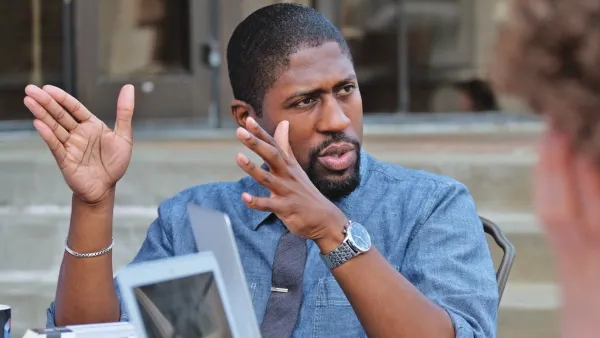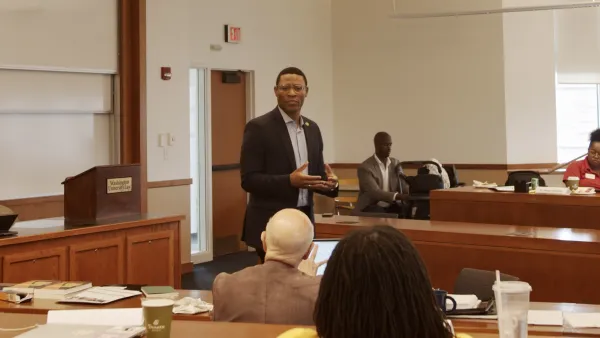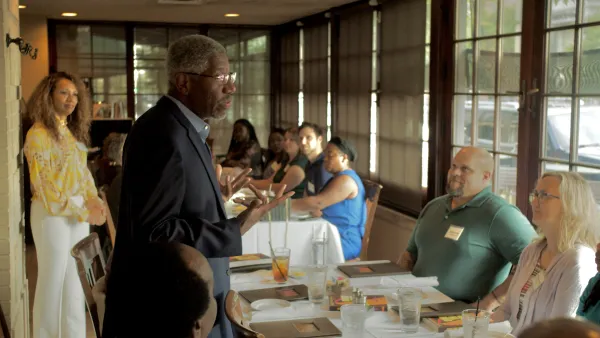Lerone Martin, Director of American Culture Studies and Associate Professor of African And African American Studies and Religion and Politics has been very busy, since the spring of 2020, he has received three sizable research grants that address enduring scholarly questions and pressing needs in the Saint Louis community .
First, as co-director of the "The Crossroads Project” Lerone received a $1 million grant from the Henry Luce Foundation for the study of African American religions. The Specifically, the Crossroads project "will advance public understanding of the history, politics, and cultures of African American religions, exploring these questions and aims to highlight the diversity of traditions in Black religious life, past and present." A major part of the project will be the development of a digital platform showcasing the work of project fellows that will allow students, teachers, and interested publics to engage materials interpreting Black religious histories, communities, and cultures and their place in American history and life. In addition to the grants to develop projects for the digital platform, other initiatives of “The Crossroads Project” include public events, a research working group that brings together scholars from across the country, a mentoring program for graduate students and early-career scholars, and a postdoctoral fellowship that will bring an early-career scholar to Princeton to develop their own research and contribute to the project.
Lerone also received a $250,000 grant from the Teagle Foundation to implement “Citizenship and Freedom: From Plato to Maya,” an intensive three-week summer humanities seminar and school-year civic engagement program for promising, underserved high school students from the St. Louis region enrolled in the university’s College Prep Program.
Finally, Martin and Clara Wilkins, associate professor in the Department of Psychological & Brain Sciences, received an award of $187,176 from The Self, Virtue, & Public Life research initiative to conduct a two-year study to explore the root causes of such zero-sum thinking in Christian faith communities concerning social issues. The project builds on a series of pilot surveys with approximately 500 Christians of various denominations. It will combine in-person interviews with quantitative psychological analyses to assess the extents to which faith communities perceive bias against their own groups; the motivations and policy implications of those beliefs; and potential strategies for addressing zero-sum thinking and the resulting tensions between Christian and LGBT groups.



